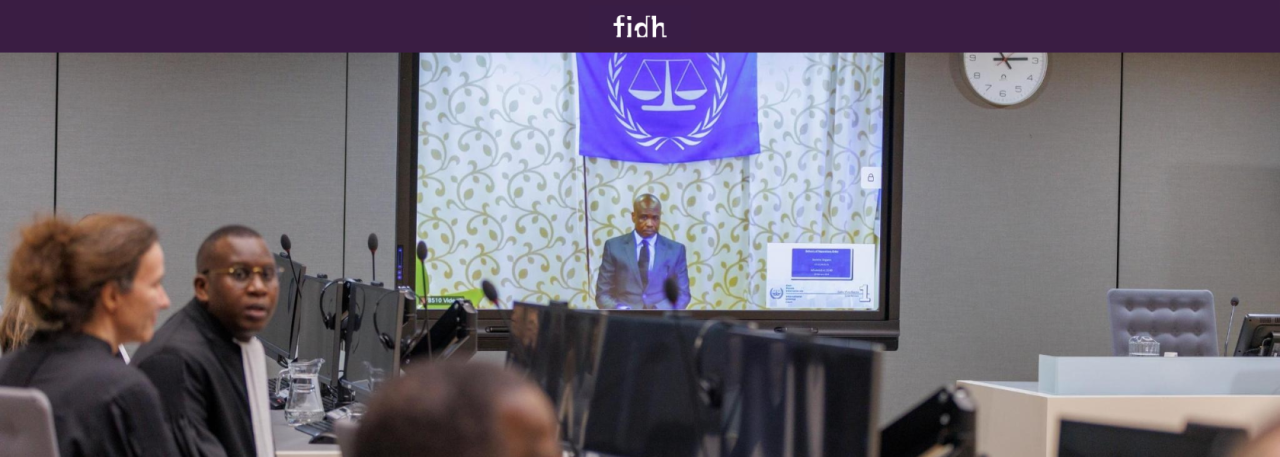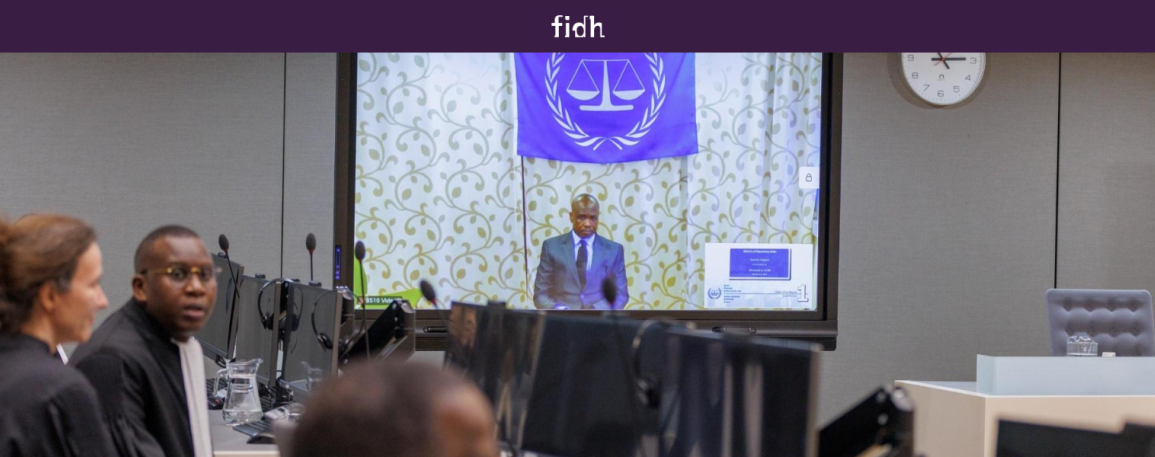
ICC Judges have issued the Court’s largest reparations order to date, with €52,429,000 awarded to 49,772 victims. The International Federation for Human Rights (FIDH) joins other human rights organisations in welcoming this significant milestone acknowledging the extent of the harms of Dominic Ongwen’s crimes and ICC victims’ Rome Statute rights to reparations. FIDH calls on ICC States Parties, and other donors to provide funds to the Trust Fund for Victims (TRV) to finance the reparations, and on judges and Registry to uphold victims’ rights to participate and to legal representation in the reparations implementation stage, including by allocating sufficient legal aid to their counsel.
Paris, The Hague, 28 February 2024. With the delivery of the largest reparation order ever delivered by the International Criminal Court (ICC) in the Dominic Ongwen case today, thousands of victims of his crimes in northern Uganda get closer to obtaining reparation for the harm they have suffered. As human rights organisations who submitted an amicus in the case, we welcome the decision by the ICC, while also emphasising the urgency to implement this order, given that two decades have passed since the crimes took place.
Today’s order considered that the most appropriate type of reparations for the victims of Ongwen’s crimes are collective community-based measures and programmes, focused on rehabilitation, to address the extent of harms suffered by the “overwhelming number of eligible victims”, which conservative estimates by the judges put at 49,772. In addition, it ordered individual symbolic or satisfaction measures, including an award of €750 for all eligible victims, which it said should be prioritised over the collective community-based measures, acknowledging the desire of victims to obtain individual reparations, the importance of which was also emphasised in our amicus.
Now, the responsibility moves to the ICC’s Registry that has to identify and register victims, and to the Trust Fund for Victims (TFV), that has been instructed by the Court to design and implement a reparation plan, in consultation with victims in the case. The judges estimated the cost of reparations for which Ongwen is liable is €52,429,000. This includes €15 million for collective community-based reparations; €37,329,000 to fund individual symbolic awards of €750 to victims, and €100,000 for other community, symbolic and satisfaction measures, including acts of apology and monuments. Given that Ongwen is indigent and has no means to pay reparations, the unprecedented number of victims poses a major challenge for the TFV, as it lacks the financial resources to fulfil the order of the Court. The judges noted that the TFV will need to undergo substantial fundraising efforts with States, organisations, companies and individuals.
The organisations call on ICC States Parties and other relevant stakeholders to finance the process for identifying and registering victims, and to make voluntary donations to the TFV, so that victims/survivors in Uganda, who have suffered unspeakable harms, can realise their right to reparation. We also call on the Court, the Registry and the TFV to fulfil victims’ rights to participate in the design and implementation of the reparation process, the importance of which was emphasised by the judges in their decision. This requires an inclusive approach that fully takes into account the diversity of victims, including the views of survivors of conflict-related sexual violence and children born of war, so that they can participate effectively in this process. Victims should also have adequate legal representation during this process, with adequate legal aid provided by the Registry to Legal Representatives of the Victims during the reparations implementation phase.
The organisations also call on the Ugandan government to complement the ICC order through the delivery of domestic reparation measures that can reach more victims of their decades long conflict with the Lord’s Resistance Army (LRA). As the Court noted, the victims that are eligible for ICC reparations are only direct and indirect victims of Ongwen’s crimes committed in Northern Uganda between 1 July 2002 and 31 December 2005. This leaves thousands of victims affected by the 19-year conflict outside the scope of this reparation order. In 2019, Uganda adopted a Transitional Justice Policy, but the Ugandan parliament has yet to enact legislation establishing a mechanism for the implementation of reparation for victims of the conflict, including survivors of conflict-related sexual violence and children born of war.
Today’s order, nevertheless, presents an opportunity to deliver reparation to some victims of the conflict. Victims were subjected to war crimes and crimes against humanity, including torture and sexual and gender-based violence ranging from rape to sexual slavery, enslavement and forced pregnancy, some perpetrated directly by the former LRA commander. With the ICC investigation opening in 2004 and Ongwen’s guilty verdict in 2021, victims have waited two decades to access measures that will help them in moving forward with their lives.
The organisations are pleased that the decision recognises children born from the victims of sexual violence in captivity as victims. These children lack identity documents, which has hampered their access to education, health, and other social services, as well as job opportunities. The amicus emphasised that these children should be considered direct victims who have suffered harms including transgenerational harm, which was recognised by the judges. Efforts to provide reparation to victims by the Court must also be carried out in a manner which avoids raising tensions between communities and causing harm, as we urged in our amicus.


